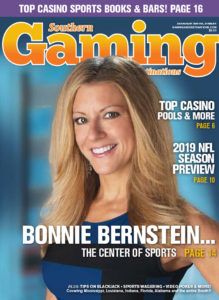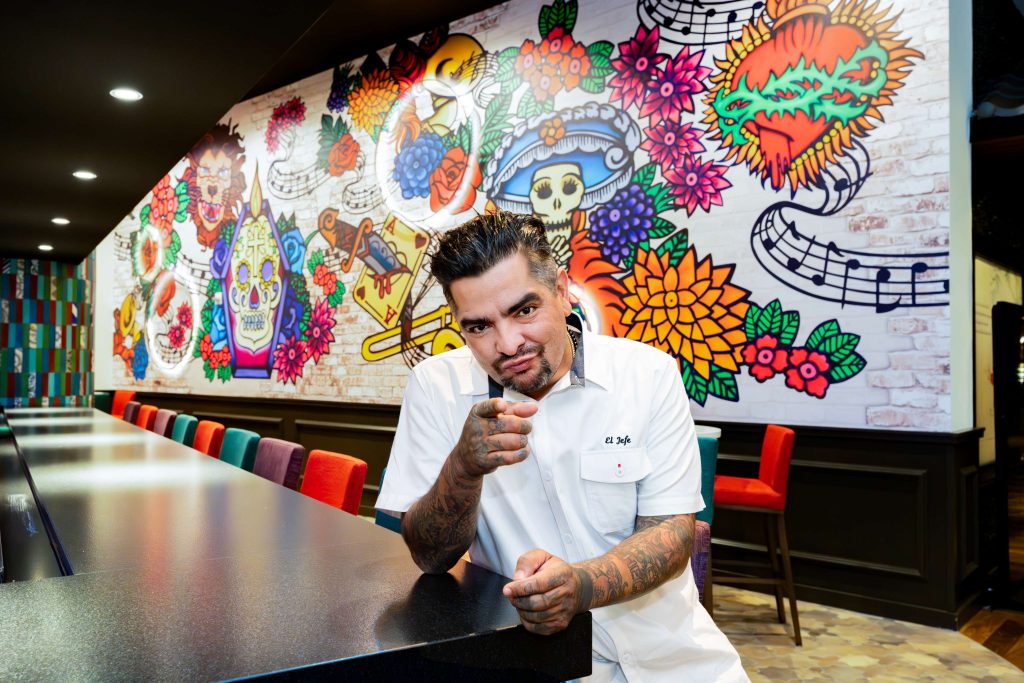
Chef Aarón Sánchez has earned his way to the top of the culinary world from his early years learning from his grandmother who was a home chef who published her knowledge in a cookbook in 1987. He also learned his way around the kitchen by working at his mother’s restaurant in New York and really getting to know the ins and outs of the business.
After years of hard work and dedication working for others in the industry, today Chef Sanchez stays busy running his New Orleans restaurant, Johnny Sánchez, appearing on top cooking shows such as MasterChef and Chopped as both a judge and a chef. He is also driven to celebrate the Latin lifestyle through culinary expression and guests can see and taste that influence in every meal.
Most recently, Chef Sanchez has opened his latest Johnny Sanchez restaurant at L’auberge Casino in Lake Charles, Louisiana and the reviews and guest feedback indicates it is here to stay. We got the chance to catch up with Chef Sanchez to hear more about his background, the restaurant and his passion for cooking.
Listen to the full interview below:
G. Douglas Dreisbach: What were your early influences for cooking? And when did you know you had a passion for it?
Aaron Sanchez: I grew up in a restaurant family. My grandmother was a really great home cook, and she published a cookbook in 1986 called Mexican Family Cooking. And then, my mom kind of followed in her footsteps and had a restaurant in New York City for about 27 years. So, I grew up in the restaurant business and being around it all the time was just something I was used to. I love the idea of taking care of people through food, putting their needs before mine, and making people happy. It just seemed like a natural trajectory, and I didn’t mind the work. I didn’t mind the environment. I didn’t mind any of that, the hours, for me, were fun and I had a great time doing it and happy I did it. I never thought the industry would be so glorified and so put on a pedestal like it is now.
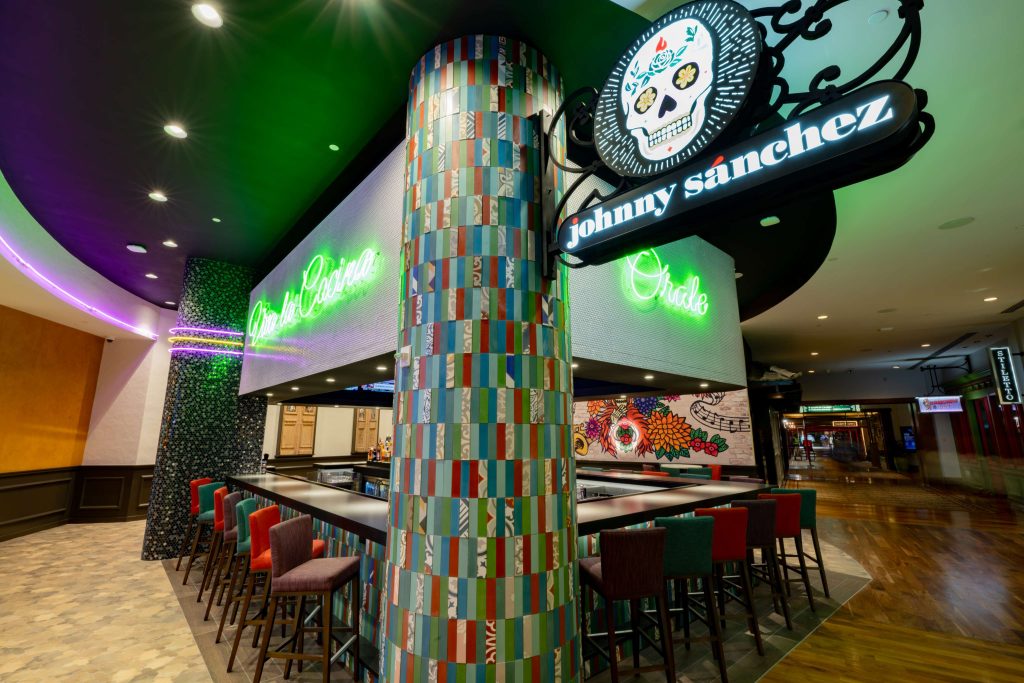
GDD: Just because you are a good chef at home, does it translate to a restaurant kitchen? What are the glaring differences between a home chef to a restaurant chef?
AS: It’s sad because I think a lot of people that cook at home and get great reviews from friends and family think that it can parlay into a restaurant, and then it’s difficult, and very challenging, you have to have business acumen. You have to have be able to change your point of view and adapt to what customers want and what their needs are. So, there’s a lot of factors that really make a restaurant spin and be successful, as opposed to doing some dinner party or cooking at home or on a video on YouTube or whatever. There’s a lot involved, and it’s a team-based situation. All of us are in it together. And you have to empower people on your team. That’s the way I look at it.
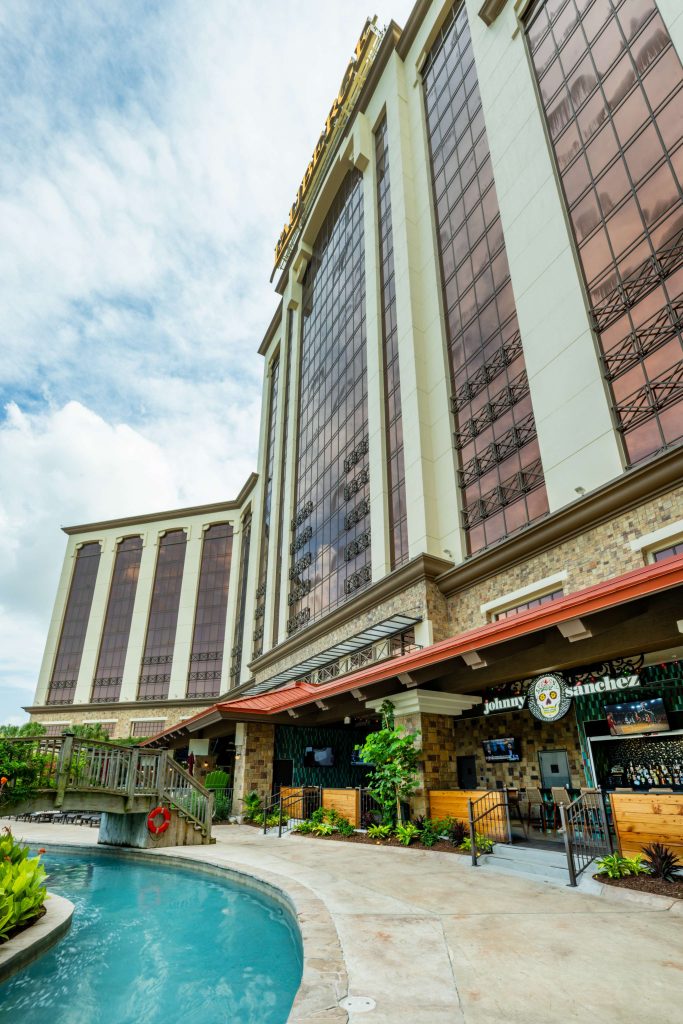
GDD: At some point, you took the leap of faith and went and opened your first restaurant. What was that like, and how did you do that? What was the process?
AS: I mean, it was hard. I opened my first restaurant in 2000. I was just a 24, 25-year-old kid and did it because I was kind of ambitious. I was courageous. I was full of piss and vinegar, and I wanted to make a name for myself, so I did it. I worked my ass off, and it was hard. There were a lot of very uncertain nights and difficulties just seeing if this was going to work out. But, people just took to what I did, and I was very fortunate for that.
GDD: Do you remember the point of your career when you went from restaurant owner and operator to “Oh, my gosh, now I’m on Chopped and MasterChef”? What was it like to have these major outlets coming to you for your knowledge and your expertise?
AS: Well, you get asked to do one thing, and if you do well, hopefully people identify with you, and then you’re asked to do something else and then just keep going back, you know what I mean? Then, through time, you start getting a reputation, and people know who you are, and it goes from there. I’ve been very blessed with the number of opportunities I’ve gotten and television has been a vehicle to get people into the restaurants. I never got into television to be famous. I got into television because I wanted to use it as a marketing tool. I wanted people to come to the restaurant. That’s what I want. You know what I mean?
GDD: That makes total sense. Your restaurant in New Orleans, Johnny Sánchez, has been super successful and recently expanded to a new location at L’auberge Casino in Lake Charles. The menu is amazing and has everything from soups and street tacos to burritos and fajitas. Tell us a little bit about what went into the makeup of the Lake Charles location menu and what is different and what is similar to the New Orleans restaurant.
AS: There are a few things different in New Orleans by virtue of the access to different kinds of products. We get crawfish, crab meat, things that are literally half an hour away from us, so those ingredients might be different. But conceptually, it’s very similar in its core. We do very popular classic Mexican dishes, utilizing either Louisiana or Texas ingredients, and trying to celebrate Mexican culture. We’re not a fusion restaurant. We don’t do stuff like that. This is a Mexican restaurant, and we celebrate a lot of classic dishes, and that’s really what you’ll find.
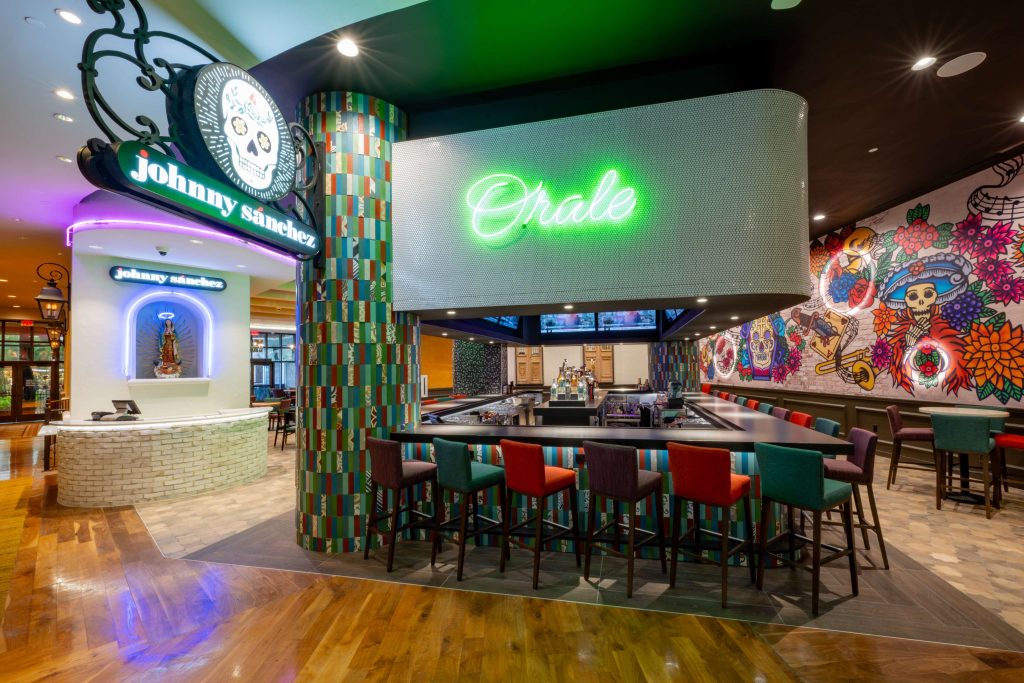
GDD: It is really unique for a casino property to have this type of a menu for their guests, not only as expansive as it is, with street tacos, with braised short rib, ahi tuna, and whatnot, but the prices are really reasonable, as well. Hopefully our readers are playing enough, they can get their dinners comped by their casino hosts! But the prices are very reasonable. However, the food isn’t the only thing that’s amazing at Johnny Sánchez. The cocktail menu is out of this world. It looks like you have about twenty or so signature cocktails as well as a lot of great tequilas.
AS: Yeah, absolutely. But what you must remember is that tequila is one of the most iconic spirits of Mexico, obviously. The bar program, I’m very proud of, because what’s happening is that the bartenders end up starting to really create, and being like magicians, and what happens is that they’ll be able to import their point of view to the menu. And that’s what we want. We want them to feel like the Johnny Sánchez restaurant is theirs. That’s the key to being successful, is when you show your staff you can take notes. So, we’ve done that, and with great cocktails and a very friendly environment, a big bar, so that people that don’t want to sit at a table, they can eat at the bar, all that kind of stuff.
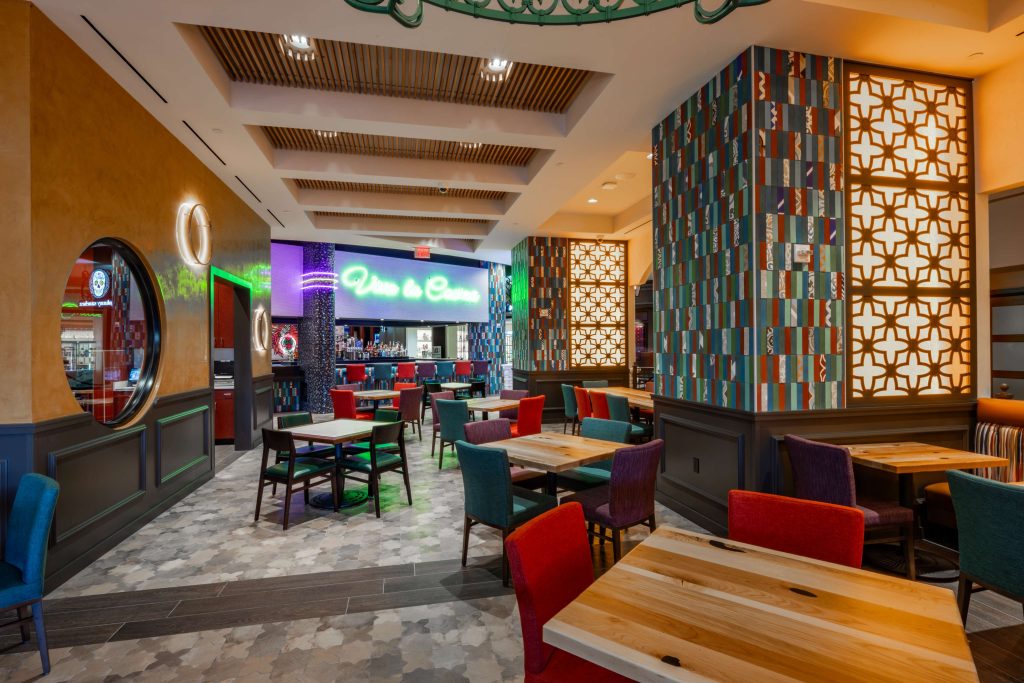
GDD: Some of the dishes look like artwork. Where do you find the creative inspiration when putting these plates together? It’s like, “OK, I’ve got an ahi tuna taco, and I know it’s going to taste great, but how do I make it visually appealing to my guests?” Where do you get that inspiration?
AS: Well, chefs like to say less is more. It’s like when you go out to dinner, take two things off, as a woman, and you’re going to be perfect. You know what I mean? Same thing with a dish—take two things off the dish, and just keep it straightforward, and just highlight what’s on the menu. If you say crispy shrimp taco, that shrimp needs to be crispy, you know what I’m saying? It needs to be visible, and it needs to be front and center. When you put things on the menu, it’s a promise to your customer, and you want to make sure you deliver with that promise.
GDD: Delivering to your customers is something you’ve been doing for a long time. Another thing you’ve been delivering is promoting and celebrating the Latin lifestyle through culinary culture, and one of those ways is the product Cocina, which is an online content platform dedicated to the Latin lifestyle of culinary. Can you explain the Cocina initiative and how that’s working out?
AS: It’s been great. I started doing shows in Spanish about 15 years ago, all over Latin America. Then I met a gentleman named Emiliano Saccone, who was the VP of Fox multicultural, and we became dear friends. We came up with the idea of starting this Latin platform, which basically identifies new talent and celebrates them, not just myself, but also develops shows that pinpoint pop culture, traditional elements, and things of that nature. So, Cocina is really about celebrating Latin culture and letting other people have access to it, with the recipes and the shows and all of that. So, we do a little bit of everything.
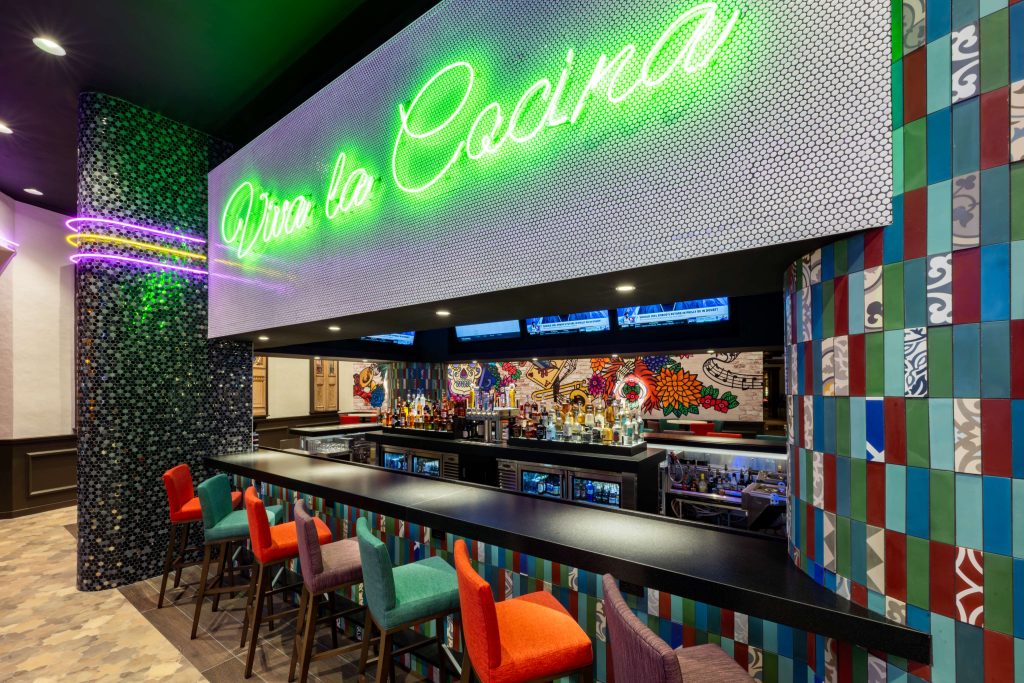
GDD: Thank you for your time today, is there anything you would like to add for our readers today before we close?
AS: I just want to say thank you so much, and please come and visit us at L’auberge. I’m very proud of the restaurant. It’s a beautiful place. You’ll have a great time, and we look forward to seeing you there. So, thank you.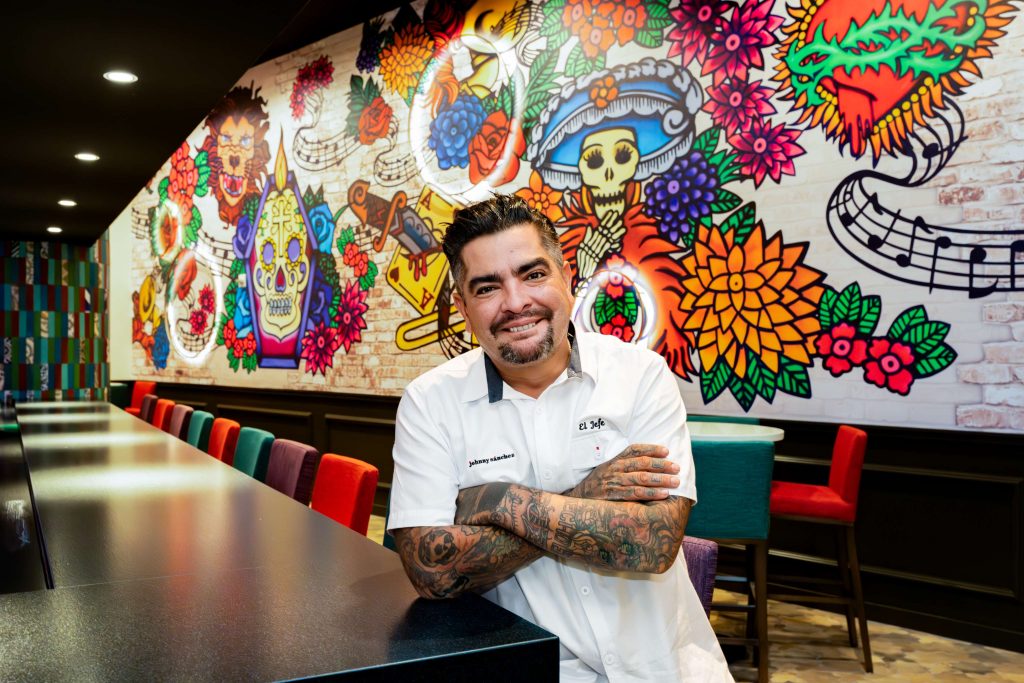
Interview by G. Douglas Dreisbach
Intro music in interview by James McMurtry




